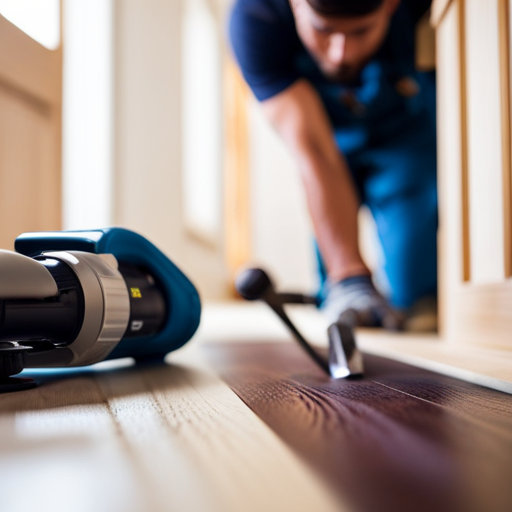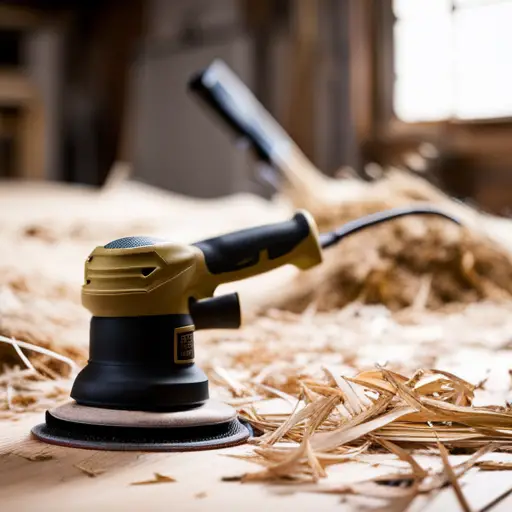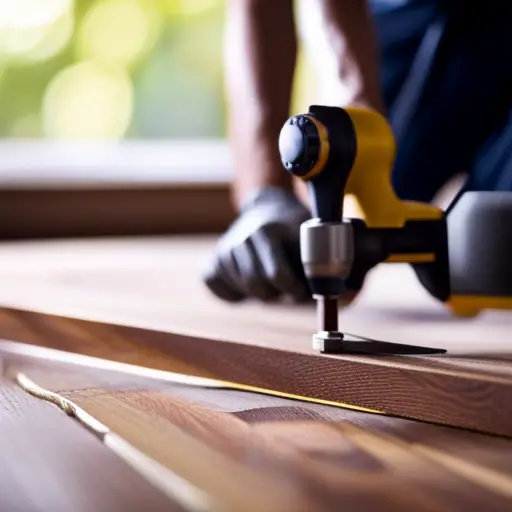The Importance of Professional Flooring Installation

Just as a sturdy foundation is essential for a building’s structural integrity, professional flooring installation sets the stage for a property’s aesthetic appeal and longevity.
From ensuring proper subfloor preparation to expertly handling various flooring materials, the expertise and precision of professional installers yield durable, visually stunning results that enhance both the functionality and value of a space.
In this article, we delve into the critical importance of entrusting your flooring installation to skilled professionals.
Proper Subfloor Preparation
When preparing the subfloor for installation, it is essential to ensure that it is level, clean, and free of any debris or imperfections. Subfloor leveling is crucial as it provides a stable base for the flooring material, preventing premature wear and damage. Uneven subfloors can lead to issues such as cracking, squeaking, and gaps in the flooring. To address this, professional installers use various techniques such as self-leveling compounds or floor patching to create a smooth and even surface.
Furthermore, moisture barrier installation is another critical aspect of subfloor preparation. Moisture can seep through the subfloor and damage the flooring material, leading to warping, mold, and mildew. To prevent this, a moisture barrier, such as a plastic or foam underlayment, is installed to protect the flooring material from any potential moisture in the subfloor.
Expertise in Flooring Materials
Professional flooring installation requires a deep understanding of various flooring materials’ properties and characteristics. A professional installer must possess extensive knowledge of different types of flooring materials, including hardwood, laminate, vinyl, and tile, in order to ensure proper installation and long-term durability. Each type of flooring material has unique requirements and installation techniques, and a thorough understanding of these is crucial for a successful installation.
The table below provides a brief overview of key characteristics and considerations for each type of flooring material:
| Flooring Material | Key Characteristics | Installation Considerations |
|---|---|---|
| Hardwood | Natural, durable, can be refinished | Acclimatization, subfloor preparation |
| Laminate | Resilient, easy to clean, affordable | Underlayment, expansion gap |
| Vinyl | Waterproof, versatile, low maintenance | Subfloor condition, adhesives |
| Tile | Durable, moisture-resistant, stylish | Subfloor strength, grout and sealant |
Precision and Attention to Detail
With a meticulous approach, professional flooring installers prioritize precision and attention to detail to ensure flawless execution. Craftsmanship is at the core of their work, as they understand the importance of every minute detail in the installation process. Here’s how their precision and attention to detail make a difference:
-
Accurate measurements: Professional installers meticulously measure the space to ensure that the flooring material fits perfectly, leaving no gaps or overlaps. This precision is crucial for a seamless and polished look.
-
Seamless transitions: Skillful execution is evident in the seamless transitions between different flooring materials or between the flooring and other elements like cabinets or stairs. Attention to detail is key in achieving a cohesive and visually appealing result.
These professionals understand that even the smallest imperfection can affect the overall appearance and durability of the flooring. Therefore, they approach each project with precision and an unwavering commitment to delivering high-quality results. Their attention to detail sets them apart, ensuring that every installation meets the highest standards of excellence.
Long-Term Durability and Performance
Ensuring long-term durability and high performance is a fundamental objective of professional flooring installation. Professional installers are trained to provide durability assurance by preparing the subfloor properly, using the correct adhesives, and ensuring that the flooring material is installed according to manufacturer specifications. This meticulous approach results in a floor that can withstand heavy foot traffic, resist wear and tear, and maintain its structural integrity over time.
Moreover, professional installation contributes to performance longevity, ensuring that the flooring retains its functional qualities such as slip resistance, impact resistance, and ease of maintenance for an extended period.
The expertise of professional installers also plays a crucial role in enhancing the overall performance of the flooring. By meticulously aligning, securing, and finishing each flooring component, professionals ensure that the floor performs optimally in terms of load-bearing capacity, sound insulation, and thermal efficiency. Furthermore, professional installation minimizes the risk of issues such as buckling, warping, or uneven surfaces, which can compromise the long-term performance of the flooring. Such attention to detail and precision ultimately leads to a flooring system that excels in performance and durability.
Transitioning into the subsequent section about ‘enhanced aesthetics and property value’, it is important to note that professional installation not only ensures long-term durability and performance but also significantly contributes to the overall aesthetic appeal and value of a property.
Enhanced Aesthetics and Property Value
A professional flooring installation not only ensures long-term durability and performance but also significantly enhances the aesthetics and property value of a space. The aesthetic appeal of a space is greatly influenced by the flooring material, design, and installation techniques. When professionally installed, flooring materials such as hardwood, luxury vinyl, or ceramic tiles can transform a room, creating a cohesive and visually appealing environment. Proper installation techniques ensure that patterns align seamlessly, edges are precisely cut, and transitions between different flooring materials are smooth, enhancing the overall aesthetics of the space.
Furthermore, the property value of a space is inherently tied to its visual appeal. Professionally installed flooring elevates the perceived value of a property, making it more attractive to potential buyers or tenants. The precision and attention to detail exhibited in professional installations reflect a higher standard of craftsmanship, signaling quality and care to anyone entering the space. This can lead to increased property value and a competitive edge in the real estate market.
Frequently Asked Questions
What Are the Potential Risks or Drawbacks of Not Having Professional Flooring Installation?
Potential risks of not having professional flooring installation include DIY mistakes leading to costly repairs and uneven floors. Improper installation can also void warranties and compromise the longevity and performance of the flooring materials.
How Can Professional Flooring Installation Affect the Indoor Air Quality of a Property?
Professional flooring installation can significantly impact indoor air quality by ensuring proper ventilation and minimizing the release of harmful chemicals. This contributes to a healthier indoor environment, reducing the risk of respiratory issues and promoting overall well-being.
Can Professional Flooring Installation Help Prevent Future Maintenance Issues or Repairs?
Preventative measures taken during professional flooring installation can help prevent future maintenance issues or repairs. This approach ensures long-term benefits by addressing potential problems upfront, resulting in a durable and reliable flooring system.
Are There Any Specific Industry Standards or Regulations That Professional Installers Must Adhere To?
Industry standards for professional installers include qualifications, regulatory compliance, professional training, and certification requirements. These standards ensure high-quality installation, adherence to safety protocols, and compliance with industry best practices, ultimately benefiting both installers and clients.
What Type of Warranty or Guarantee Can Be Expected With Professional Flooring Installation Services?
Professional flooring installation services typically offer a warranty that covers workmanship and materials, providing consumers with quality assurance and peace of mind. Installers with certification adhere to industry standards, ensuring consumer protection and satisfaction.
Conclusion
In conclusion, professional flooring installation is essential for ensuring proper subfloor preparation, expertise in flooring materials, precision, attention to detail, long-term durability, and enhanced aesthetics and property value.
While some may argue that professional installation is costly, the long-term benefits and durability of professionally installed flooring outweigh the initial investment.
Ultimately, professional installation not only enhances the appearance and value of a property but also ensures the longevity and performance of the flooring.

Rubin Everest, a seasoned expert in the world of flooring, brings a wealth of knowledge and passion to the surface. As the mind behind ebbow.com, Rubin is dedicated to sharing insights on the latest trends, innovative solutions, and expert advice in the realm of flooring. Whether you’re seeking practical tips for installation or design inspiration, Rubin Everest is your go-to source for all things flooring-related, making your journey to the perfect floor an informed and enjoyable experience.





